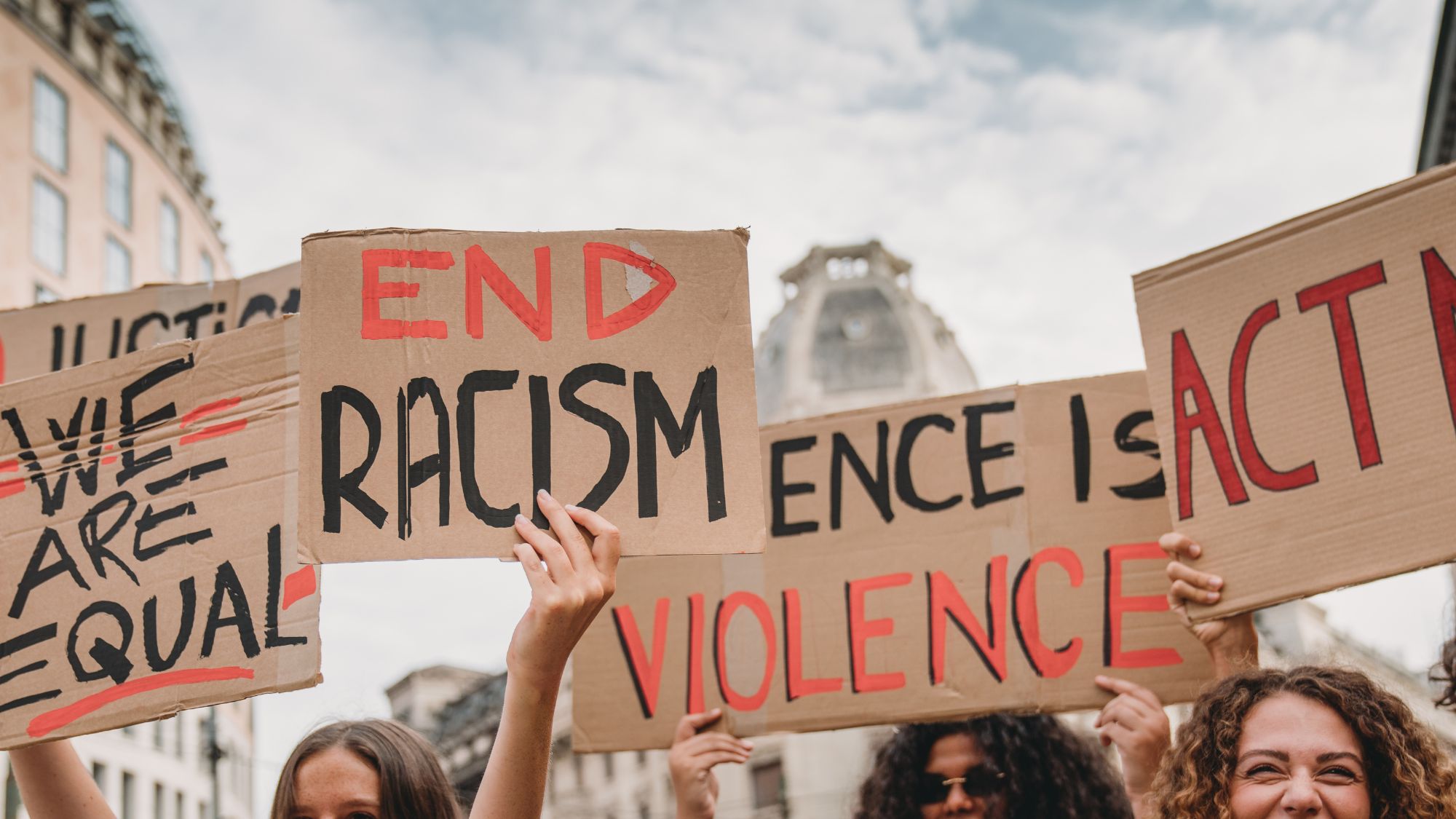Is This England? For people of colour, ‘Belonging’ and ‘Britishness’ are so often conditional
“The attitudes and rhetoric that spurred these riots and attacks are not new,” argues Emma Slade Edmondson

After a week-long assault of far-right riots in over 20 cities and towns across the UK, which saw Muslims and Black and brown people targeted by far-right aggressors, and asylum seeker accommodation set alight with people inside, yesterday Britain woke up to the looming threat of further riots and xenophobic attacks on more than 100 locations.
As I read WhatsApp messages from friends and family members—some nervous to leave their homes, others sharing solidarity and sentiments about not giving in to fear—I was struck by my own reaction. Of course, I felt horror and anxiety, but there was also a depressing absence of surprise.
London Photographer Mel Legarda told me, “I’m devastated and disappointed but not shocked. Her heart sank when she saw the list of possible far-right riots because not only are her parents ethnic minorities, but they also run an immigration office. “I’ve seen how immigration changes lives and benefits this country”, she says. Legarda is Filipino, the biggest Southeast Asian migrant group in the UK. She says that seeing Filipino nurses being attacked in Sunderland on their way in to do emergency cover during the riots makes her feel “a bit hopeless.”
For the first time in my life, my parents [who have] lived in this country for the majority of their lives, texted me saying “we feel really vulnerable, pray for us.” That genuinely breaks my heart.
Mel Legarda
The attitudes and rhetoric that spurred these riots and attacks are not new. The very real fear they are instilling in immigrants and people of colour who have seen this play out before is not new.
I spent the last four years researching and writing a book that is, at its core, about identity, belonging, and how race relations play out both in the UK and globally. In studying the history of Britain through this lens, I have become all too familiar with how British politics and the press have a history of tactically villainising immigrants and non-white communities.
Over the past few days, we have seen the collage of previous Daily Mail headlines circulating on social media that depict the many Islamophobic and racist headlines published. Press headlines over the last 14 years like, ‘The swarm on our streets’ or ‘True toll of mass migration on UK life’ have often read like an extension of the government’s agenda, and in tandem, they have fostered an environment and policy where the lives of people who are not white are seen as of less value.
I have become all too familiar with how British politics and the press have a history of tactically villainising immigrants and non-white communities.
Emma Slade Edmondson
In an interview on ITV’s Good Morning Britain, MP Zarah Sultana said that what we are seeing is nothing new for Britain. She spoke about how her parents endured fascist far-right violence in the ’80s and referenced the complicity of the press and government in the dehumanising of immigrants, Muslims and Black and brown communities. She asserted that it was no surprise that this is happening.
Celebrity news, beauty, fashion advice, and fascinating features, delivered straight to your inbox!
Three white commentators challenged Sultana. She was talked over and repeatedly questioned on her use of the word ‘Islamophobia’. It is not uncommon to see this format on British TV, where two or more white commentators challenge one person of colour, and it begins to look as though they are being challenged on their very humanity, their right to exist in this space, to exist in this country, in all their fullness. This viscerally reinforces the idea of Britishness and belonging as being conditional for anyone who is not white living in Britain.
What we are seeing play out now is the consequence of these campaigns that create an ‘other’ during times of economic strife or political power grabs.
Emma Slade Edmondson
In my book The Half Of It, we look at how immigrants and communities of colour and their children in the UK have been historically dehumanised, as well as how multiculturalism in Britain has been periodically demonised to discourage both immigration and race mixing. What we are seeing play out now is the consequence of these campaigns that create an ‘other’ during times of economic strife or political power grabs.
This Is England. The England that ethnic minorities know bubbles beneath the surface as a constant. And for those who are feeling surprised about the riots that have erupted across the country - if you look closely enough, there is a clear pattern and well-documented history that helps explain what we are seeing. On the flip side, last night, we also saw thousands of people gather in London, Liverpool, Bristol and Brighton to send the message that this hate is not welcome. This is also England.
We need more of those displays of solidarity from those who can safely afford to use this privilege and follow this example. We need people within the press, and we need better leadership that doesn’t challenge the foundation of the very existence and humanity of people of colour in seeking explanations for the issues the country currently faces.
Emma Slade Edmondson is the co-author of The Half Of It, which is available in bookstores and online now. You can find her podcast and upcoming live events @mixedup.podcast
Emma Slade Edmondson is the author of The Half Of It, a Sustainability consultant, and a host. She has written on race and identity, sustainability and fashion, and for publications like Grazia and Eco Age. In 2020, she launched her award-winning podcast Mixed Up, an exploration of Race and Identity through the lens of the Mixed-Race experience.